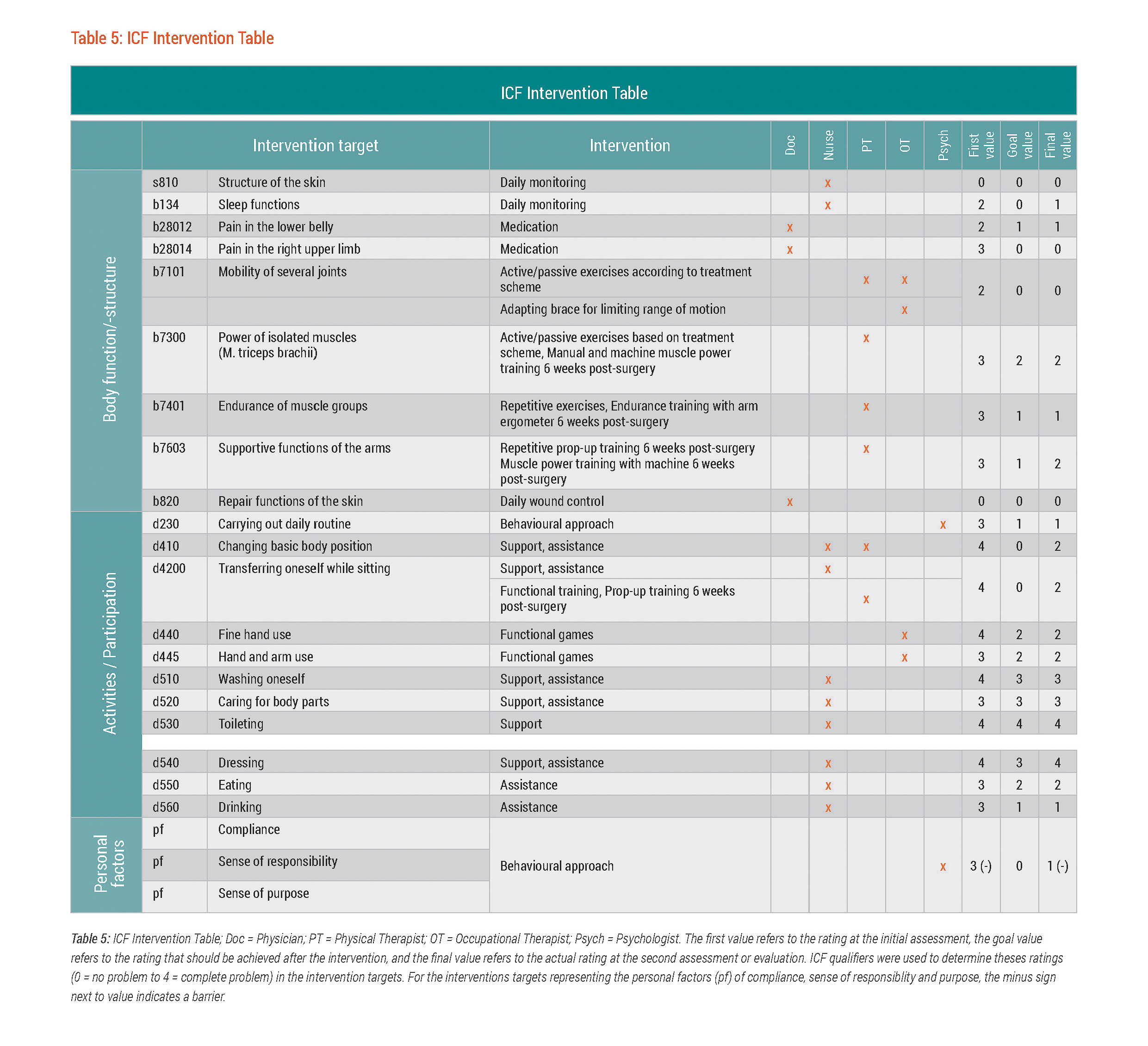Assignment and Intervention
For example, the psychologist was assigned the responsibility for addressing Peter’s compliance with interventions, and his sense of responsibility and purpose. The intervention the psychologist decided to implement included a realistic behavioural plan with attainable goals that incorporated progressive levels of difficulty from Peter’s point of view. At the end of each week, both Peter and the psychologist evaluated the extent to which the goals had been reached. Since these three intervention targets i.e. compliance, sense of responsibility and purpose were of particular importance as well as the cornerstone of all the other goals outlined in Peter's rehabilitation program, the rehabilitation team hoped that addressing these specifically would also contribute to the success in the other goals.
""The intervention...included a realistic behavioural plan with attainable goals that incorporated progressive levels of difficulty from Peter's point of view.""
It is important to note that based on Peter’s development following surgery and his subsequent behavioural change, it was difficult to decide on the goal value that should be attained following intervention. Some members of the rehabilitation team decided to make a prediction and adapt it during the intervention period if necessary.

Table 5: ICF Intervention Table; Doc = Physician; PT = Physical Therapist; OT = Occupational Therapist; Psych = Psychologist. The first value refers to the rating at the initial assessment, the goal value refers to the rating that should be achieved after the intervention, and the final value refers to the actual rating at the second assessment or evaluation. ICF qualifiers were used to determine these ratings (0 = no problem to 4 = complete problem) in the intervention targets. For the interventions targets representing the personal factors (pf) of compliance, sense of responsiblity and purpose, the minus sign next to value indicates a barrier.